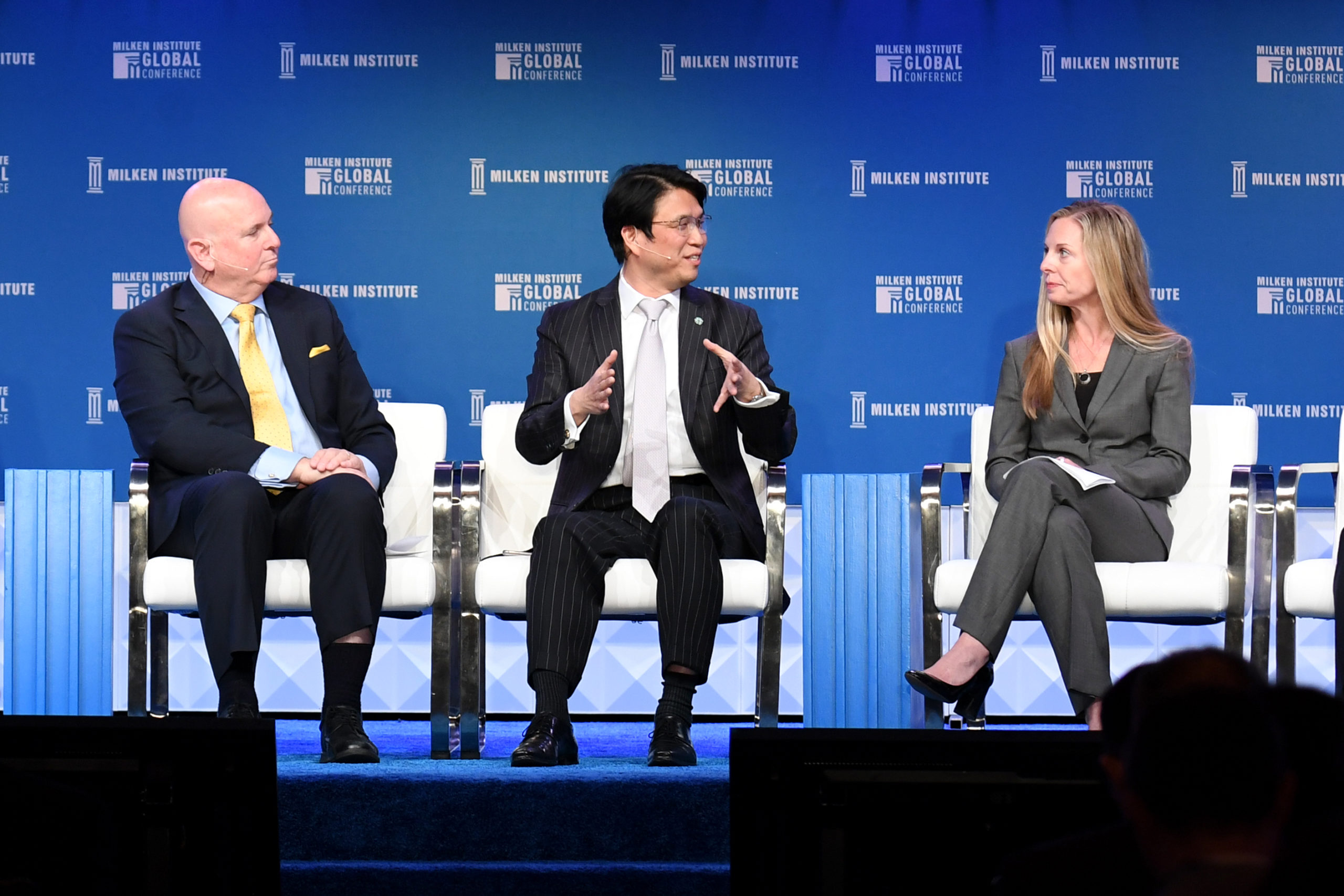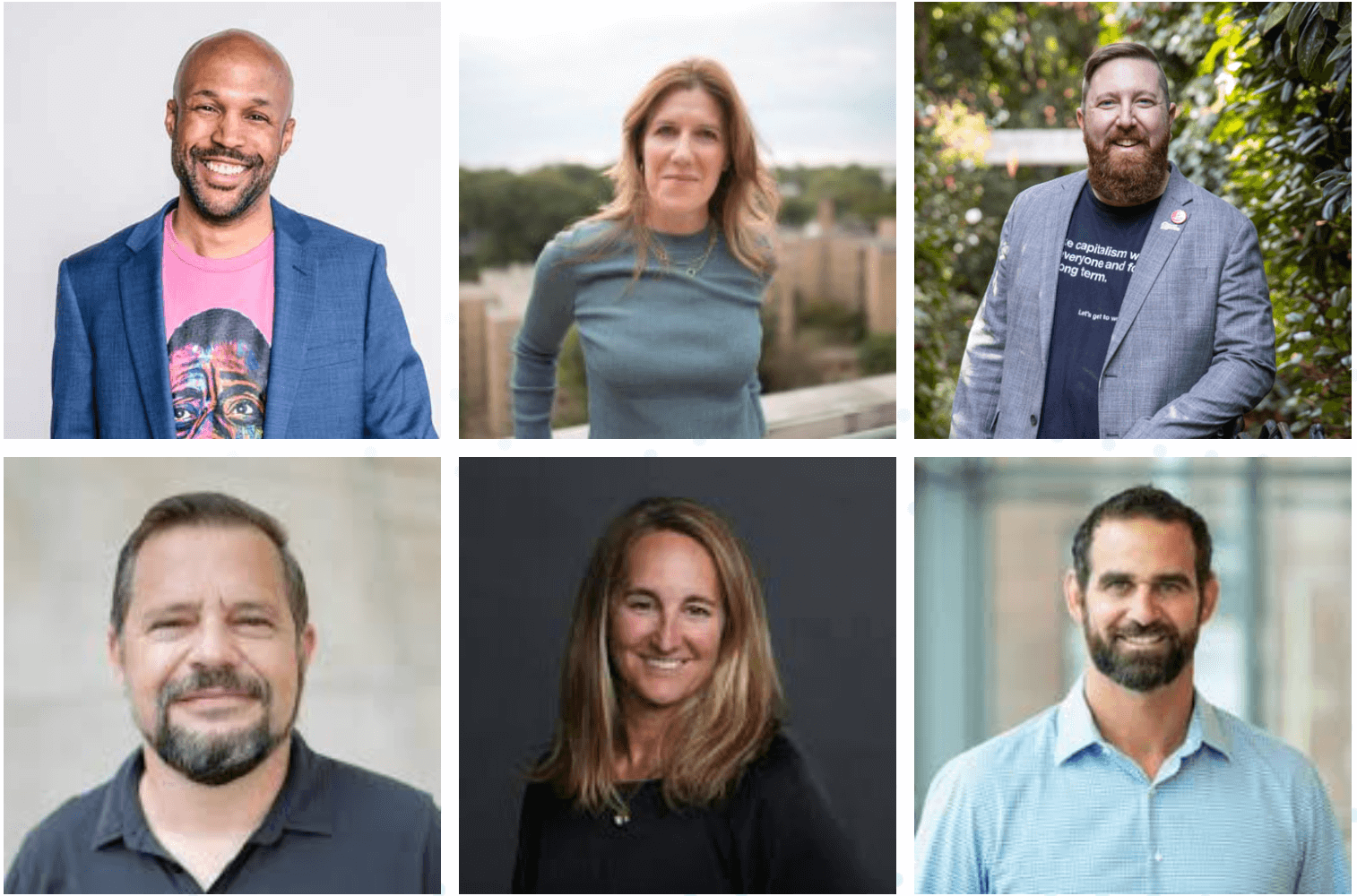ImpactAlpha last month featured Hiro Mizuno, chief investment officer of Japan’s $1.6 trillion Government Pension Investment Fund, as an “Agent of Impact.”
At this week’s Milken Institute Global Conference, Mizuno was indeed a man on a mission, mobilizing other institutional investors around sustainability in global financial markets. As a “universal owner” of roughly 1% of all global assets, GPIF can’t dodge systemic risks.
“We own the universe. We own the capital markets,” Mizuno said on a panel with other pension fund managers (video). “When the systemic risks hit the market, all our efforts to beat the market are not going to be good enough.” As a group, he said, “We should make the capital markets sustainable.”
Mizuno’s strategy of choice is “ESG integration,” and he pressed conference organizers to give the topic higher visibility (video). GPIF two years ago required all its asset managers to integrate such environmental, social and governance factors into their analysis.
“Recently we added ‘and investment decisions,’ because we heard that they are integrating it into the analysis, but in decision-making they don’t care,” he joked.
As assets flow to ESG investing, investors on the sidelines face hidden risks
- Change the index, change the market. On paper, GPIF’s biggest equity manager is BlackRock. In reality, Mizuno said, indexes such as MSCI largely determine managers’ holdings. MSCI’s Henry Fernandez touted the $150 billion in assets benchmarked to MSCI’s ESG indices. Mizuno appeared unimpressed. “So why don’t you integrate ESG into your major index, rather than selling a (separate) ESG index?” Mizuno asked Fernandez. Maybe in 10 years, Fernandez replied.
- How long is long-term? GPIF is structured as a 100-year fund to meet the future obligations of Japan’s aging society, when there will be too few workers to carry the burden. Other asset owners professed to be long-term investors as well – sort of. “We have to consider opportunity costs in the short- and medium-term as well,” said Amy McGarrity of the $49 billion Colorado Public Employees’ Retirement System. “When we’re picking an oil and gas company, we may not take a 30-year view on stranded asses. We may take a five- to 10-year view on that security.”
- Track the inevitable. Mizuno said he is more confident in forecasts about climate change, Africa’s population explosion and global migration “than in my prediction of the interest rate in 10 years time.” The financial industry spends too much time analyzing things that are unknowable, he says, and not enough on social and environmental trends hiding in plain sight. “But our industry is failing or refusing to bring that into the analysis,” he says.
- Lead, follow or get out of the way. Mizuno closed with four takeaways: GPIF expects passive managers to become active owners, engaging corporate leaders on sustainability issues. Don’t let the lack of data or standardization around ESG practices get in your way. Likewise the fear of greenwashing (“I’m afraid to tell you, 99% of the sushi you are eating is not authentic,” he said. “But you still enjoy it”). Lastly, he said GPIF trusts human asset management and human wisdom to bring sustainability into finance. If they can’t, he warned, “We need to ask AI to do it.”
Universal Ownership: The supertankers of global finance are shifting course











